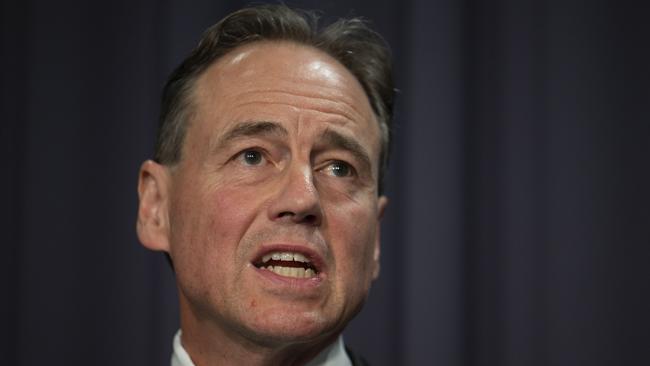Supply headaches thwart mix ’n’ match Covid inoculation strategy
The federal government has no plans to alter its advice on ‘mixing and matching vaccines’ despite international clinical trials which suggest the combination could boost immunity.

The federal government has no plans to alter its advice on “mixing and matching” vaccines, despite international clinical trials suggesting the strategy could be more beneficial in boosting immunity.
Findings from a new study from Oxford University are in line with a practice, under way in several countries including Canada and in Europe, of supplementing one vaccine with another.
The interim findings, not yet reviewed by independent scientists, found a mix-and-match approach could produce a stronger immune response than two doses of either Pfizer or AstraZeneca.
It found participants who received two doses of Pfizer generated the highest number of antibodies against the virus. But the immune response from those who got AstraZeneca then Pfizer almost matched two Pfizer shots, and participants in the AstraZeneca-then-Pfizer group generated nine times the antibodies of those who receive two AstraZeneca shots.
But federal government advice remains unchanged; people should complete a full course of the same vaccine.
“Australia’s medical experts have been clear in their advice that both vaccinations should be completed with the same vaccine,” a Health Department spokesperson said. “The TGA, ATAGI and the chief medical officer have all reaffirmed this.”
Countries including Canada, France, Spain and Norway are encouraging people to mix and match. This month, the Canadian National Advisory Committee on Immunisation advised Canadians who had had AstraZeneca first could receive Pfizer or Moderna as their second dose, as it halted use of AstraZeneca over safety fears.
UNSW Professor Raina MacIntyre said our reluctance to follow suit is more about the supply issues associated with Pfizer than the efficacy of a mix-and-match approach.
There are currently no conclusive studies to suggest significant benefits from a Pfizer then AstraZeneca dose. With an ample supply of locally made AstraZeneca, epidemiologists predict Australia’s vaccination rollout to be unchanged until supply issues are fixed later this year.
“The research that’s been published so far looks encouraging, particularly for the AstraZeneca shot, as it improves greatly to have a Pfizer following an AstraZeneca dose,” Professor MacIntyre said.
“I suspect we will see a recommendation for mixing vaccines once the supply problem is fixed. If they changed it now, they may not have the supply to meet the demand especially with the reports from GPs that over-50s were not turning up to get their second dose of AstraZeneca.”
Burnet Institute epidemiologist Mike Toole said Canada was able to mix and match doses because of its ample supply of protein-based vaccines. “Canada was able to do it, like many other rich countries, because they have a lot more Pfizer than we do.
“Canada has enough vaccine to immunise their population four times over.
“Now that people over 40 can get Pfizer we are going to be in a really tight spot until later in the year when we will get Moderna, Pfizer and Novavax.”
Deakin University Chair of Epidemiology Catherine Bennett said mixing vaccines was likely to be useful for booster shots as part of the nation’s longer-term immunisation strategy.
jess malcolm



To join the conversation, please log in. Don't have an account? Register
Join the conversation, you are commenting as Logout